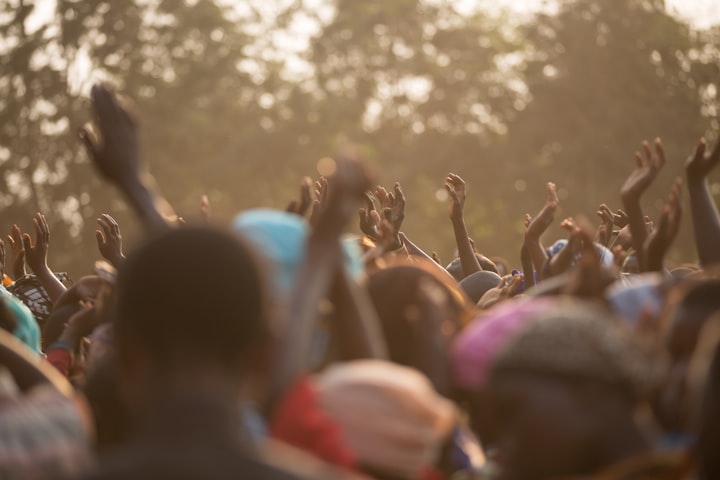The Complex Aftermath of Coups in Africa
Challenges, Consequences, and Paths to Recovery


Africa, a continent with a history marked by political upheavals, has seen its fair share of coups d'état. These abrupt and often violent changes in leadership have far-reaching consequences, not only for the nations directly affected but also for regional stability and global geopolitics. In this article, we will delve into the intricate aftermath of coups in Africa, exploring the challenges, consequences, and the often arduous path to recovery.
I. Political Instability and Governance
One of the most immediate and pressing consequences of a coup in Africa is political instability. Coups disrupt established political structures, and the subsequent power vacuum can lead to a prolonged period of uncertainty. This instability can manifest in several ways:
Interim Governments: In the aftermath of a coup, an interim government is often established, typically composed of military leaders. These transitional administrations are tasked with restoring order and preparing the ground for a return to civilian rule. However, their legitimacy is often questioned, and they may face resistance from various quarters.

Erosion of Democratic Institutions: Coups undermine democratic institutions, as the rule of law is often disregarded. The military's control over the state machinery can lead to a weakening of checks and balances, the suppression of civil liberties, and a regression in terms of democratic progress.
Ethnic and Tribal Conflicts: Coups can exacerbate existing ethnic and tribal tensions, as power struggles often involve these identity-based fault lines. This can lead to ethnic violence and further destabilize the affected nation.
II. Economic Disruption
The economic consequences of coups in Africa are significant and multifaceted. The uncertainty surrounding a coup attempt can deter foreign investment and disrupt economic activities, leading to economic downturns:
Investor Confidence: Coups erode investor confidence, both domestically and internationally. Businesses are often reluctant to invest in countries with a recent history of political instability, hindering economic growth.
Aid and Assistance: Many African nations rely on foreign aid and assistance. Coups can trigger a suspension of aid from donor countries and international organizations, exacerbating economic challenges.
Resource Mismanagement: The competition for control over valuable natural resources, such as oil and minerals, can be a driving force behind coups. Unfortunately, this often leads to resource mismanagement, as the coup-installed government may prioritize personal gain over the long-term interests of the nation.
III. Human Rights Violations
Human rights violations are a grim reality in the aftermath of coups in Africa. The period following a coup is often marked by abuses such as:
Arbitrary Arrests: Political opponents, activists, and journalists are frequently targeted for arbitrary arrests by the new regime.
Torture and Extrajudicial Killings: Reports of torture and extrajudicial killings are distressingly common as those in power seek to suppress dissent.
Media Suppression: Freedom of the press is curtailed, with censorship imposed on media outlets to control the narrative and limit criticism of the coup.

IV. Refugee Crises
Coups and the ensuing conflicts can trigger refugee crises as people flee violence and instability. This places an enormous burden on neighboring countries and international humanitarian organizations. Overcrowded refugee camps, limited access to resources, and the potential for further cross-border tensions are all challenges that stem from this consequence of coups.
V. International Isolation
Countries that experience coups often face international isolation. The international community, including regional organizations like the African Union and global powers, frequently condemns coup perpetrators and imposes sanctions. While these measures are intended to pressure the coup-installed government into restoring democratic order, they can also harm the civilian population and exacerbate economic hardships.
VI. Long-Term Instability
Perhaps one of the most concerning aspects of coup aftermath is the potential for long-term instability. Coups can set in motion a cycle of political instability, with subsequent coup attempts becoming more likely. This recurring pattern not only hampers the affected nation's development but also poses a threat to regional stability.
Efforts to Address the Aftermath of Coups in Africa
Addressing the complex aftermath of coups in Africa requires a multifaceted approach. Some key strategies and initiatives include:
Mediation and Diplomacy: Regional organizations like the African Union and sub-regional bodies play a crucial role in mediating conflicts and encouraging peaceful transitions of power. Diplomatic negotiations can help prevent prolonged instability.
Conflict Resolution: Conflict resolution mechanisms should be employed to address ethnic and tribal tensions that often follow coups. National dialogues, reconciliation processes, and peacebuilding efforts are essential.
Humanitarian Assistance: The international community should provide humanitarian assistance to countries facing refugee crises and support organizations working to alleviate suffering.
Promotion of Democracy: Promoting democratic governance is a long-term solution. Encouraging free and fair elections, strengthening democratic institutions, and supporting civil society organizations are vital steps in this direction.
Economic Recovery: Post-coup governments should focus on economic recovery and rebuilding investor confidence. This can be achieved through policies that prioritize economic stability, transparency, and good governance.
Security Sector Reform: Reforming the security forces to ensure civilian control, professionalism, and accountability is crucial in reducing the likelihood of military involvement in politics.

Conclusion
The aftermath of coups in Africa is a complex web of political, economic, and social challenges. These events disrupt nations, lead to human rights abuses, trigger refugee crises, and threaten regional stability. Addressing these consequences requires a combination of diplomatic efforts, conflict resolution, humanitarian assistance, and a long-term commitment to democracy and good governance.
The ultimate goal is to break the cycle of political instability and violence, allowing African nations to thrive and progress toward a more stable and prosperous future. While the challenges are immense, the resilience and determination of African nations, along with the support of the international community, offer hope for a brighter tomorrow.
About the Creator
Sheriff Adeyemi Jinadu
I am synonymous with determination and ambition, am a multifaceted individual whose life journey reflects a commitment to constant growth and a desire to make a positive impact on the world.






Comments
There are no comments for this story
Be the first to respond and start the conversation.